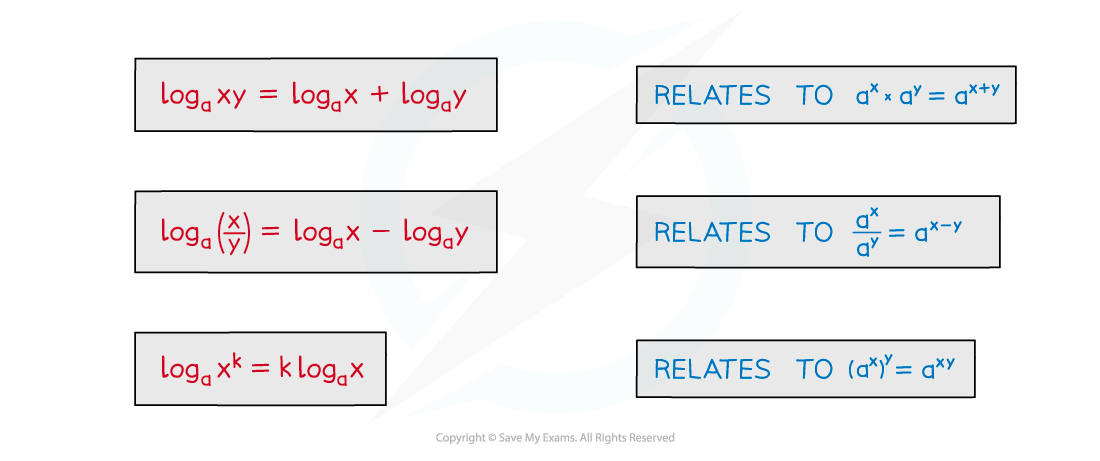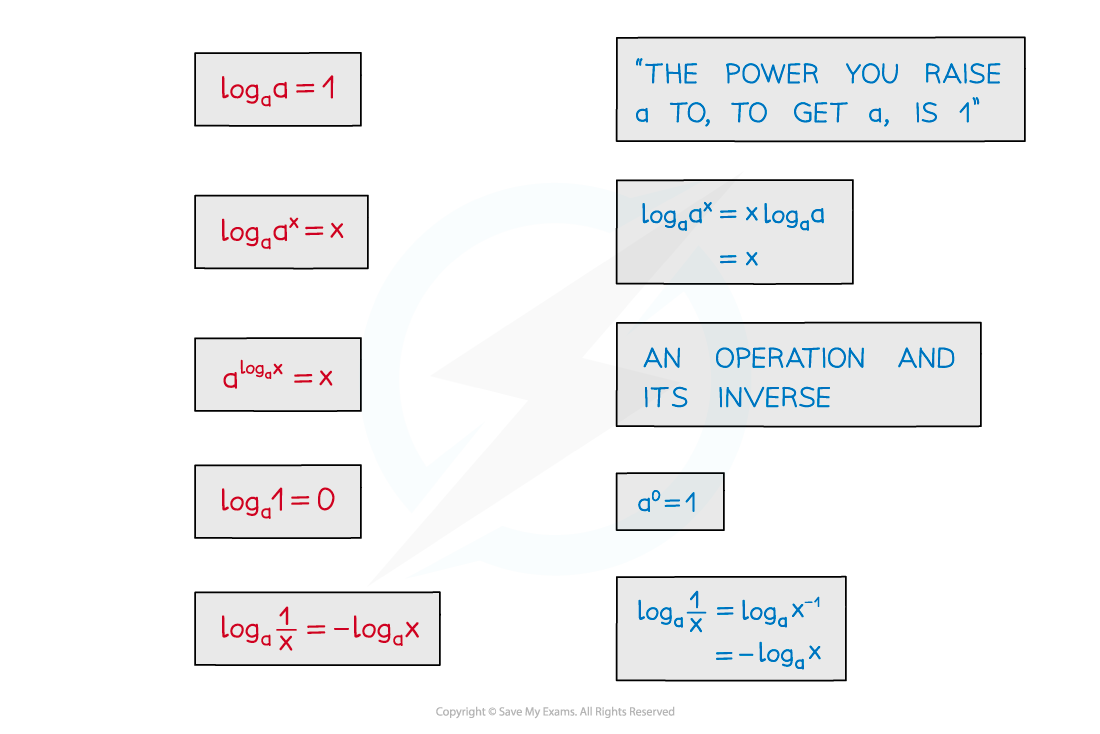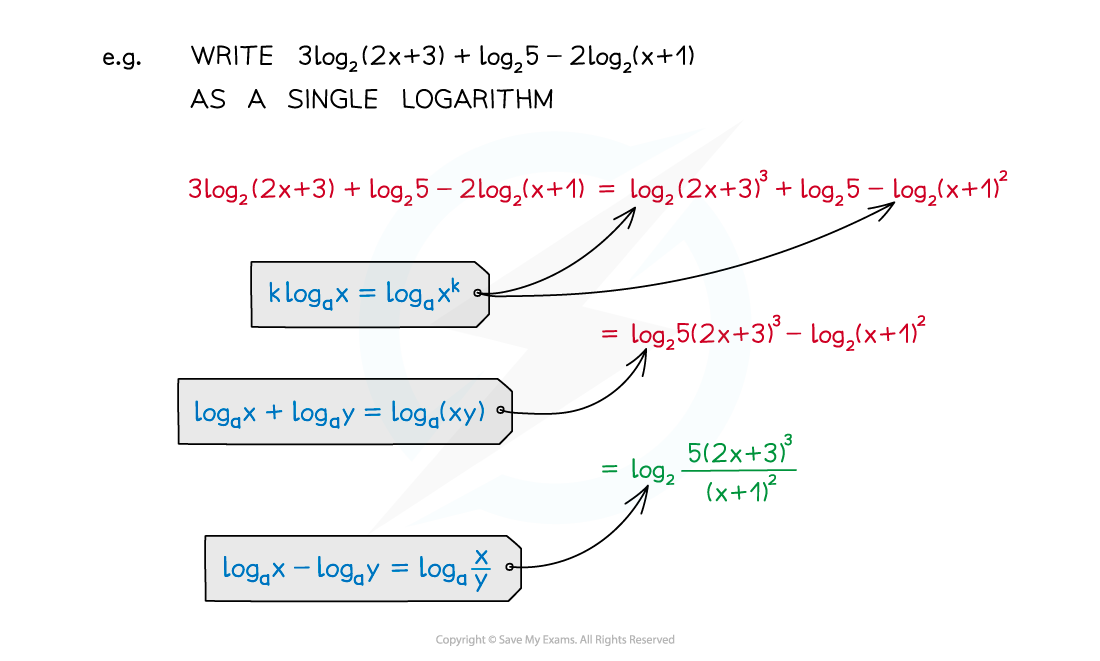Laws of Logarithms (Edexcel A Level Maths) : Revision Note
Did this video help you?
Laws of Logarithms
What are the laws of logarithms?

There are many laws or rules of indices, for example
am x an = am+n
(am)n = amn
There are equivalent laws of logarithms (for a > 0)

There are also some particular results these lead to

Two of these were seen in the notes Logarithmic Functions
Beware …
… log (x + y) ≠ log x + log y
Results apply to ln too
In particular
and
How do I use the laws of logarithms?
Laws of logarithms can be used to …
… simplify expressions
… solve logarithmic equations
… solve exponential equations

Examiner Tips and Tricks
Remember to check whether your solutions are valid
log (x+k) is only defined if x > -k
You will lose marks if you forget to reject invalid solutions
Worked Example

Did this video help you?
"ln"
What is ln?
ln is a function that stands for natural logarithm
It is a logarithm where the base is the constant "e"
It is important to remember that ln is a function and not a number
What are the properties of ln?
Using the definition of a logarithm you can see
is only defined for positive x
As ln is a logarithm you can use the laws of logarithms
How can I solve equations involving e & ln?
The functions
and
are inverses of each other
If
then
If
then
If your equation involves "e" then try to get all the "e" terms on one side
If "e" terms are multiplied, you can add the powers
You can then apply ln to both sides of the equation
If "e" terms are added, try transforming the equation with a substitution
For example: If
then
You can then solve the resulting equation (usually a quadratic)
Once you solve for y then solve for x using the substitution formula
If your equation involves "ln", try to combine all "ln" terms together
Use the laws of logarithms to combine terms into a single term
If you have
then solve
If you have
then solve
Worked Example

Examiner Tips and Tricks
Always simplify your answer if you can
for example,
you wouldn't leave your final answer as
so don't leave your final answer as

You've read 0 of your 5 free revision notes this week
Unlock more, it's free!
Did this page help you?
